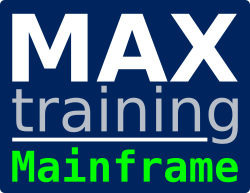IBM Security zSecure CARLa Auditing and Reporting Language
Code: TK232GDescription
Learn the basics of the IBM Security zSecure programming language CARLa. This course teaches you to use the CARLa Auditing and Reporting programming language to create reports for RACF, SMF, UNIX Systems Services (USS), CICS, DB2, and RACF command generation. Approximately 40 percent of the course is spent on hands-on lab exercises, where you produce CARLa code that can be used for effective management and reporting on RACF, SMF, USS, CICS, and DB2. You also learn to use CARLa to create your own reports or commands, or modify existing zSecure RACF functions to fit with your installation's requirements. In addition, you learn how to automate these functions by using them in scheduled batch jobs. You also learn how to use CARLa to create your own reports, emails, CARLa programs, or commands. It is explained how to modify existing zSecure RACF functions to fit with your installation's requirements. In addition, you learn how to automate these functions with the use of scheduled batch jobs.
Audience
This advanced-level course is for security administrators, systems programmers, compliance officers, and auditors who want to create their own reports or generate automated RACF or USS commands with the IBM Security zSecure Auditing and Reporting Language (CARLa).
Prerequisites
You should have the following skills:
- Basic knowledge of, and experience with, RACF
- Familiarity with the IBM Security zSecure Admin or Audit ISPF panel interface
Objectives
- Write CARLa programs that report RACF user and group profiles based on your selection criteria.
- Produce and run CARLa programs to list RACF data set and general resource profiles that are not available with IBM Security zSecure predefined report functions.
- Produce a CARLa program that generates RACF commands based on various selection criteria.
- Use two-pass CARLa to generate CARLa code with a CARLa program.
- Run CARLa programs in batch.
- Produce reports from SMF log records.
- Produce XML-formatted reports with CARLa.
- Use CARLa to produce custom CICS or DB2 audit reports.
Topics
Chapter 1: Introduction and the CARLa Interface
- The information types that CARLa can process.
- Run CARLa programs using Interactive System Productivity Facility (ISPF)
- Three most commonly used CARLa keywords
- Write your own customized CARLa report
Chapter 2: CARLa SELECT and SORTLIST statements
- Produce customized RACF reports
- Specify the profiles that you want to report with SELECT statements
- Format reports with SORTLIST statements and output modifiers
- Add custom values to reports with user-defined fields
Chapter 3: Frequently Used CARLa functions
- Report about information that is stored in repeat groups
- Sub-filter the repeat group information with SUBSELECT statement
- Create ISPF reports with drill-down capability using a DISPLAY statement
- Combine information from multiple profiles and segments
- Use string processing in reports
Chapter 4: NEWLIST and SUMMARY options
- Combine multiple reports with the NEWLIST statement
- Add statistical information to reports
- Generate RACF commands with CARLa
Chapter 5: Advanced CARLa Functions
- Use profile or record pre-selection with PROFLIST function
- Use multiple input files to report about multiple systems or changes over time for the same system
- Write multiple-pass CARLa programs to solve complex problems
Chapter 6: Use CARLa in batch jobs
- Run CARLa programs with Job Control Language (JCL)
- E-mail reports that are generated by CARLa
- Generate Write To Operator (WTO) messages with CARLa
- Produce reports in Extensible Markup Language (XML) format
Chapter 7: SMF reporting with CARLa
- Produce reports about events that are logged in SMF records
Chapter 8: Other supported CARLa NEWLIST types
- Produce and customize trusted users report
- Report information from the Class Descriptor Table (CDT) with CARLa
- Report the global RACF options (SETROPTS) with CARLa
- Produce reports about the scope of a user's permissions
- Report custom CONSOLE class and DB2 region reports
Price (ex. VAT)
Duration
Delivery methods
- Classroom
- On-site (at your location)
- Virtual (instructor online)
